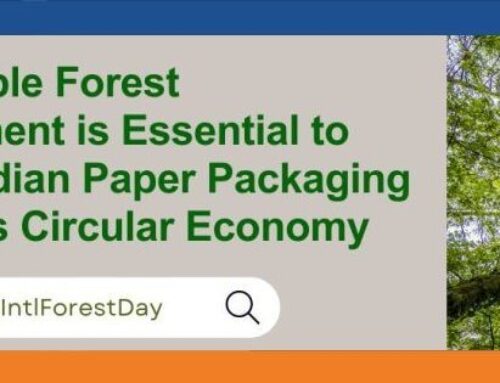Corrugated Packaging: Every Day is Earth Day

During Earth Month, which culminates with Earth Day on April 22nd, many businesses take the opportunity to revisit how they adopt additional green initiatives to help further preserve the planet’s natural resources and reduce unnecessary waste through recycling. Not only do these efforts help them become better corporate citizens, they also tend to reduce costs and improve efficiencies, especially when they partner with like-minded, environmentally-conscious organizations.
As part of the corrugated packaging industry, Royal Containers has developed an excellent model of how businesses can work together to take the lead by not only integrating sustainable practices into our everyday routine, but also by making this the basis of everything we do.
How Corrugated Packaging Promotes Sustainability
Corrugated packaging has long been a forward-thinking sector in Canada that puts an emphasis on meeting or exceeding its own standards of environmental sustainability. For example, the majority of corrugated products made in Canada are currently comprised of 100% recyclable materials, such as old boxes, cartons, and paper materials obtained from factories, supermarkets, and office buildings. Residential blue boxes are also significant contributors to corrugated sustainability, experiencing an amazing 98% recycling rate in 2015.
Overall, recycled content varies by packaging grade, such as boxes, bags, or cartons, but the industry average across the board is still 77%. With a national recovery rate for corrugated boxes of at least 85%, and with 96% of Canadians having access to the recycling of corrugated boxes, we can expect the industry average to remain stable or climb.
Today’s corrugated products facilities are designed to create most of their corrugated products from recycled content. The Paper and Paperboard Packaging Environmental Council (PPEC), which represents over 90% of the Canadian paper packaging industry on environmental issues, surveys these mills every two years to ensure that they receive their raw materials, whether virgin or recycled, from environmentally responsible sources, and that proper sustainability practices are in continually in practice.





Leave A Comment